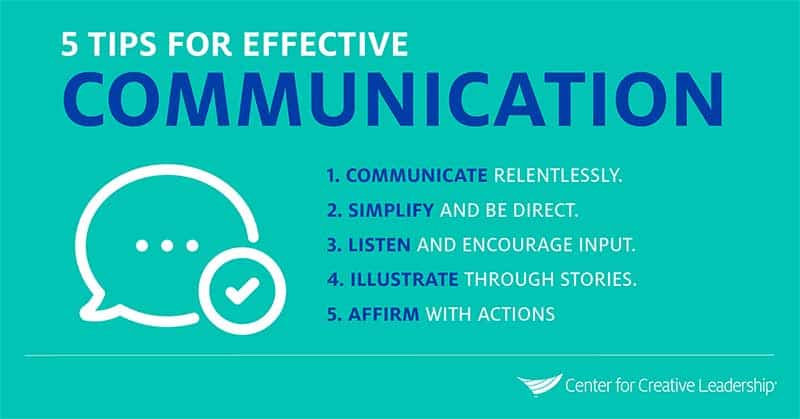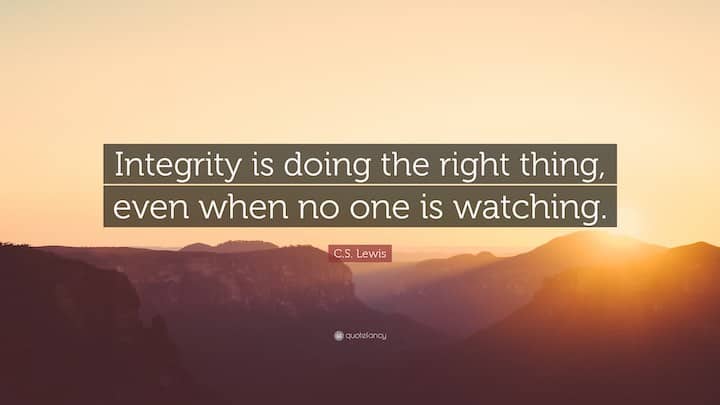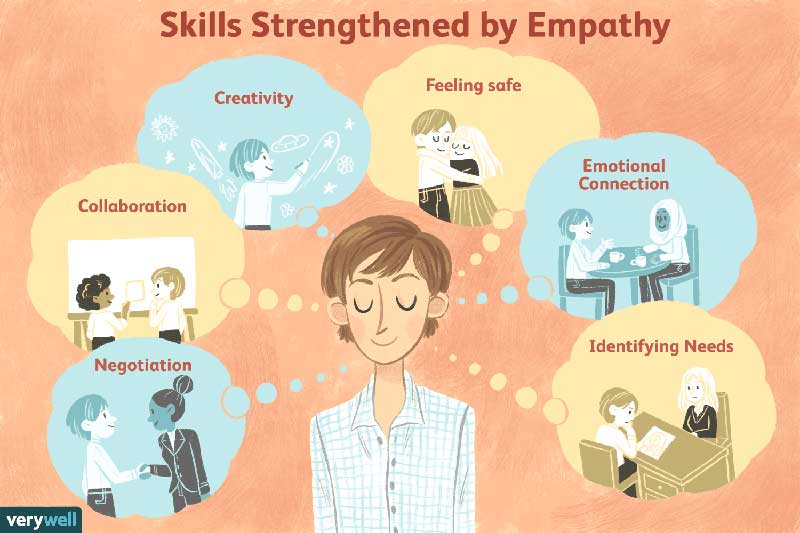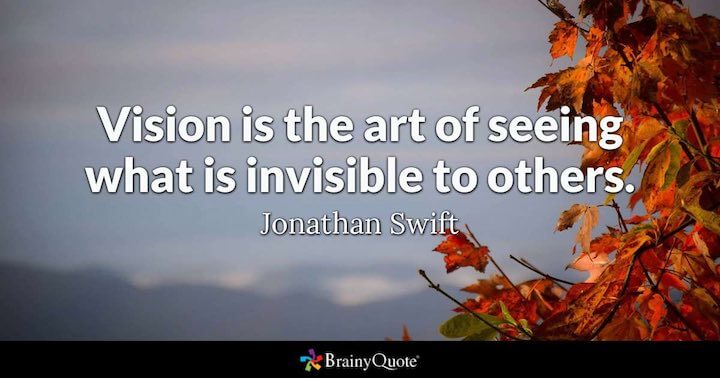11+ Leadership Qualities: A List of Skills to Make a Good Leader

Whether running your own business or leading teams in an office setting, the best leaders require a robust set of leadership qualities to help positively interact with their employees, team members, and clients.
Behavioral theories suggest that leadership skills aren’t ingrained and can be taught – people can obtain good leadership qualities through teaching and learning these skills over time.
The most essential qualities of a good leader include integrity, accountability, empathy, humility, resilience, vision, influence, and positivity.
“Management is about persuading people to do things they do not want to do, while leadership is about inspiring people to do things they never thought they could.”
— Steve Jobs
This article on leadership qualities covers the top qualities and skills that make a great leader.
Let’s get started.
What Are the Leadership Qualities that Make a Great Leader?
Irrespective of how you define the word leadership, you can’t deny that specific individuals can significantly impact the lives of others based on their experience and insights.
While we’re all living different timelines on life’s journey, we look to leaders for guidance and advice.
While some leaders seem to be naturally born that way, leadership skills can be learned. It doesn’t matter if you haven’t led before.
Specific leadership characteristics, traits, and skills ultimately build the most influential leaders.
Learn these and you can change the lives of others.
Here are the most critical leadership qualities and skills to look for in a great leader.
- Effective Communication.
- Integrity.
- Accountability.
- Empathy.
- Humility.
- Resilience.
- Vision.
- Influence.
- Positivity.
- Delegation.
- Confidence.
- Open-Minded
1. Effective Communication.
If you’re in a leadership position or role, good communication skills are one of the leadership attributes that are absolutely crucial. Using language to communicate one-to-one is all we have as human beings.

Source: ccl.org
Yes, there are non-verbal cues, but expressing yourself openly and building empathy with other people is the foundation of effective leadership.
And what is the #1 most important part of communication?
Active Listening.
Strong leaders listen and pay attention to their followers, employees, and every single person they lead. Good leaders, and even great leaders, are not born; they are made.
Right up there with empathy, the only way to get people to follow you is to make them feel heard.
One of my favorite quotes from Dale Carnegie from How to Win Friend and Influence People is, “talk to someone about themselves and they’ll listen for hours.”
This is 100% true. The more you make real eye contact and show sincere interest in the lives of others, the more people will be magnetically drawn to you and passionately speak about their lives. They’ll become inspired, feel heard, and begin to know, like, and trust you.
Alternatively, when you show no interest, lack eye contact, and pretend not to care about personal stories that others tell, they will automatically shut down, stop sharing as much, and feel self-conscious about their interests.
Communication is one of the most essential qualities of a good leader. You must be a good communicator if you want your followers to trust you fully.
2. Integrity.
C.S. Lewis said:
“Integrity is doing the right thing, even when no one is watching.”

Source: quotefancy.com
Without integrity, no real success if possible. You can’t expect your followers to be honest when you lack integrity. Simple and great leaders succeed when they stick to their word, live by their core values, lead by example, and follow through.
Integrity is the cornerstone of all other leadership qualities.
There are many things to look for in people with integrity, including:
- Apologizing for mistakes
- Highlighting the best work of their employees and downplaying their own contributions
- Giving the benefit of the doubt when circumstances are unclear
- Being appreciative of people’s time
3. Accountability.
For accountability, great leaders need to follow the advice of Arnold Glasow when he said,
“A good leader takes little more than his share of the blame and little less than his share of the credit.”
Strong and good leaders are accountable for the team’s results, good or bad.
They hold themselves and their employees accountable for their actions, which creates a sense of responsibility among the team.
They give credit where credit is due and take responsibility for blame when necessary. Being accountable and leading by example is one of the quickest ways leaders can become good leaders are by building trust with their team.
Being responsible for the actions and behaviors of those around you is essential to developing leadership skills and critical leadership qualities like accountability.
4. Empathy.
Truly great leaders have enough open-mindedness to understand their followers’ motivations, hopes, dreams, and problems so that they can forge a deep personal connection with them.
Empathy is understanding.
Empathy is one of the fundamental leadership qualities.

Source: verywellmind.com
Empathy isn’t just being a nice person.
It’s a mindset that enables leaders to:
- Make better predictions
- Improve teamwork strategies
- Inspire loyalty among their teams
- Better their negotiation tactics
- Increase creativity
Understanding where people are coming from helps facilitate a more human environment where team members are more productive and leaders thrive.
Cultivating the leadership quality of emotional intelligence is one of the great leadership attributes you can possess.
Very few leaders understand the difference between being “kind” and having emotional intelligence.
Only an effective leader understands how empowerment can come from being empathic with the people they lead.
For example, if an employee is consistently 15 minutes late, good leaders won’t impute blame on them right away, and even better leaders will solve the why questions. Why are they late?
Maybe they’re dealing with a personal struggle at home, health issues, or car troubles. Real leaders are empathetic with their teams and deeply understand their motivations.
After all, what’s more, important to human communication than understanding others?
5. Humility.
When it comes to developing leadership qualities, it can be tempting to become enamored with a new title or status instead of putting in the actual work to become a good leader with humility.
However, great leadership styles focus on problem-solving and team dynamics much more than self-promotion. A good leader will never be effective if they’re more concerned with themselves than their team’s well-being. As Thomas Merton said,
“Pride makes us artificial and humility makes us real.”
Being humble and vulnerable with their team members will make a leader much more relatable and compelling.
6. Resilience.
The true grit of a good leader is not how they perform during good times, but how they roll up their sleeves and produce when times get challenging.
Great leaders with positive attitudes lead by example and rally their teams regardless of circumstances. It’s this inherent positivity that helps react to difficult situations in a calm, collected manner and focus on solutions rather than on problems.
Resilience is one of the essential leadership qualities that is earned from experience.
7. Vision.
Jack Welch, one of the great business leaders of our time said, “Good business leaders create a vision, articulate the vision, passionately own the vision, and relentlessly drive it to completion.”
Additionally, John C. Maxwell stated, “People buy into the leader before they buy into the vision.”
A company’s vision only goes as far as a leader’s influence over others. Good leaders clearly set the organizational direction and exercise keen decisiveness. Decision-making is critical to new ideas, ensuring team members know the bottom line, and understand the goals and the mission in front of them.

Source: brainyquote.com
True leaders inspire loyalty, enthusiasm, and commitment, help remind everyone of the big picture and challenge people to outdo themselves.
Vision is one of the leadership qualities that people assume you are born with.
That just couldn’t be further from the truth.
Every great leader has had to develop the leadership attributes of vision and foresight, it wasn’t gifted to them. They honed in on the skill of becoming a world-class visionary for their organization and the people they lead.
Sharing this vision and compelling others to act is a personal trait of successful leaders.
8. Influence.
Some leaders believe that when they attain a certain level of leadership status, the leadership qualities we have discussed are owed to them. This is not the case.
Leadership and influence are not interchangeable and mutual respect has to be earned, not given.
Here are some things that leaders can do to increase their influence:
- Clearly state what they want
- Connect with people emotionally
- Make others feel important
- Be vulnerable and charismatic
- Work toward commonly shared goals
- Ask for suggestions and input
- Build real, lasting relationships
- Act professionally on social media sites like Facebook and LinkedIn
- Have self-awareness
9. Positivity.
Leaders inspire their team not based on their goals or outcomes but on their exhibited behavior, life outlook, and attitude in any situation.
It’s often said that employees and direct reports exhibit the behavior of their managers – and good leaders need to lead by example at all times while mirroring how they want their team to act.
This comes down to positivity. Even the calmest workplaces can get stressful at times – it’s more important how leaders react to this stress with a positive outlook rather than get flustered and place blame.
Positivity isn’t one of those leadership qualities that should be overlooked and deemed not necessary. Being positive during stressful or unfortunate situations is a sign of strength. It is a sign that even though things aren’t going as planned, you can still keep your head on straight and lead your people.
10. Delegation.
A difficult transition for many leaders is shifting from doing to leading.
Many new leaders are accustomed to doing all the work themselves and struggle to let others handle responsibilities independently. Great leaders must elevate their team – they must be more essential and less involved.

Source: stakeholdermap.com
This requires leaders to shape others’ thoughts and ideas toward a common goal. They give their team everything they need to be successful and get out of the way, not directing their path, but setting clear expectations and explaining where the finish line is.
They aren’t scared of their subordinates’ successes and don’t feel threatened by them. One of the most important leadership qualities of good leadership is delegating tasks and elevating their team. Through this delegation and elevation teams shine, as they are able to contribute in the most meaningful way.
11. Confidence.
To be an effective leader, you need to roll up your sleeves and take charge. This includes being confident enough to lead, knowing that your plans and vision are viable for the team and the absolute best decision possible.
Being confident in every situation is one of the leadership qualities that you must develop. Truly great leaders are able to be confident during any situation even if they feel fear or uncomfortableness.
If you lack self confidence in a leadership role, people will spot that quickly. “Make it ’til you make it,” they say about self confidence – and that is 100% true. The more you believe in yourself, the more you’ll be able to manage any stressful situation.
True leaders are the ones that don’t just talk about problems but come up with their own solutions fearlessly.
12. Open-Minded.
Being open-minded is a very important quality in leadership.
One needs to be able to listen and understand where the other person is coming from, even if they do not agree or believe what they are saying.
This will help you learn more about those you lead and also how to work with them better.
If your organization features cross functional teams, being open-minded is key to success.
Be willing to accept new ideas and concepts rather than dismiss them immediately.
This means that you should:
- Know when to adapt your decision-making process and be willing to change it. People coming up with new ideas need someone who will listen and help facilitate their thinking, not simply dismiss what they are saying without fully understanding it.
- Understand the complexity of issues and how different people may interpret them.
- Be able to see all sides of an issue before making a decision and communicate the reasons behind your decisions carefully without seeming closed-minded or inflexible.
- Don’t dismiss others’ ideas too quickly; listen to all opinions before making your final decisions on any given topic.
- Be willing to respect different opinions and ways of thinking even if you disagree with them.
Open-mindedness goes hand in hand with being a great leader. You need to be a good listener and take the time to consider the thoughts and opinions of others without dismissing them outright.
Leadership FAQ.
The best definition is leadership is the act of motivating other people toward a common goal. People that have leadership skills showcase a strong personality and interpersonal skills to lead others in their direction.
Leaders inspire others to follow a specific path in life. These leadership traits and skills are important because human nature requires certain people to take charge and help others. Without leaders, it’s tough to manage large groups of people, set unified goals, and make progress.
Leaders help their team and organization make progress and act correctly. Good leaders should build a vision, set clear goals and directions, and map a dynamic path forward for their team or group.
While a leader is simply a figurehead, a manager should exhibit the right leadership skills to motivate their team to work harder and finish projects faster. Good managers must be empathetic, exhibit the behavior they want from their team, take responsibility for their actions, delegate effectively, and give praise when needed.
The most important quality is to truly understand each team member on a personal level so that they understand the motivations that dictate their work ethic.
Leaders should act a certain way and there are some negative qualities that leaders should never exhibit. Some of these are:
1. Fail to set clear goals for their teams.
2. Insult or degrade people.
3. Give praise too easily.
4. Misbehave or exhibit behavior you wouldn’t expect from team members.
5. Not hold regular meetings with their subordinates.
6. Fail to take decisive actions.
7. Act tough or lack empathy.
Leadership Skills and Qualities Summary.
While motivation and inspiration can make leaders strong people managers, it’s the action that ultimately drives the respect and trust needed to be effective. I hope you enjoyed this list of leadership skills, traits, and characteristics that helped define strong leadership.
You can also read my thoughts on human nature for a shot of personal development.
Were there any leadership qualities not included on this list? Let me know in the comments.
Further Reading on AdamEnfroy.com: For more personal and professional development, check out my articles on self-motivation, time management skills, 119 inspirational quotes, and human nature and the meaning of life.






Thanks! My communication skill is weak. I feel shy whenever I meet new people. I hope your suggestions will help to overcome.
Awesome!
Very helpful post to know about leadership qualities. I just want to improve mine.
This very helpful thanks very much
Thanks I am trying to improve my team.
This is so helpfull for students thanks
Very helpful, good to remember these things as we climb the mamangement ladder.
It has really helped me as a leader
this is helpul for students
Very good piece of work, have just read it peacefully, it touches me especially on integrity and empathy, most of my leaders have neglected that, hope to remind them calmly but strongly
wow, very much grateful for the job well done, it help me especially for the aspect of delegation. thanks
I have learnt a lot from the 11 Principles of a good leader.
I truly appreciate for sharing this message with us.
Superb read Adam, it definitely helps when you climb up the ladder. Well written
I found just what I need! I need to improve on my communication skills
I do have a question. Could I use this to do a presentation?
Thank you
Thanks very much aleast this is so helpful for my leadership program thanks and thanks again
I find it interesting and l would love to use it for my next presentation🤝🙏thank you
I agreed to every bit in it, I am a bachelor’s student and i have also quoted this article in one of the presentations I gave recently, kudos to you for the great info.
great!!! thanks for the advice
The communication skills are what make you a successful leader!
Great Information. I mentor young girls and this info will help us grow leaders.
Thanks so much for the qualities of a good leader
Definitely your ideas is very helpful to become a successful leader
Nice work Adam. Concise and well articulated.
This was very helpful. Thanks so very much
It made sense when you said that leaders need to be able to influence the thoughts of others to help a team reach a common goal. I’ve been thinking about taking charge of my career by starting to apply for management positions at my job. I don’t currently have the best delegation skills, so maybe it’d be a good idea to find a leadership coach to accelerate my success.
I’ve been much encouraged after reading.i can’t be bulged with leadership skills without CONFIDENT.thanks soooo much
They are good qualities if each manager put them in practice , i think organization can achieve it goals oriented .
i have absolutely encouraged after reading it …….so i would like to say “thanks”.
Thank you for teaching me how to communicate and understanding the quality of a good leader
Very helpful site on leadership.l believe I will put it into practice Thanks so much and God bless u
I feel now very excited. After reading this article because it enriches me with a lot more ideas and value.
Thank you so much for publishing this article.
Wow i feel very impressed after reading ……………….thanks so much
I’ve always been voluntold by my classmates for the leadership post every time we have a group activity. Although I’ve always declined, since I’m not really confident that I can help my team when it comes to leading them towards progress and helping them act the right way. It might be a good idea to undergo leadership training during my summer vacation to improve my skills.
Am really blessed by this
Thanks
I feel so knowledgeable about leadership now, all thanks to you. Kudos for the great work.
thank you
this is a great information … 🙂
Good article, perhaps some of them I can implement in my team
Awesome!
Very helpful leadership qualities. I am trying to assist my team and the leadership knowledge will help me.
Although have read he contents brief I believe that the outlined statements and exposure of leadership qualities would greatly assist in my leadership duties in the church that I attend. Thank you and hope to know more on the subject.
Very helpful post to know about leadership qualities.
I attended my first leadership camp when I was 16. It was organized by a local club, and we had a wonderful mentor who walked us through the qualities of leadership. I vividly remember how he explained it with humour and made us act out little snippets to make the session extremely interesting and insightful.
I appreciate!
You have Wonderfully presented all the good leadership qualities…The content is really good. keep it up_✴
Very helpful thank you so much!
Very well written and explained. No doubt all the 11 qualities that you have elaborated are finely fitted in the role of becoming a great leader. Keep up the work 👍
Thanks Emma 🙂